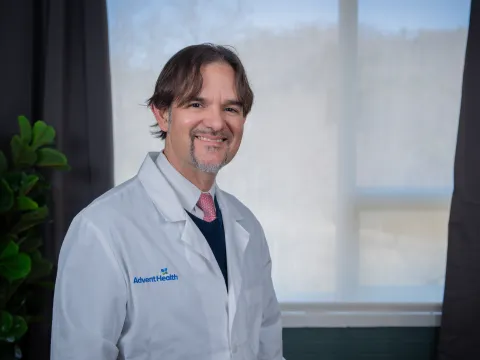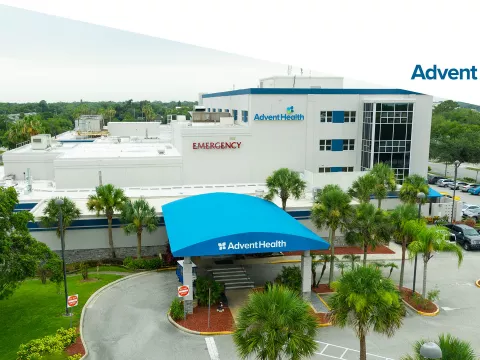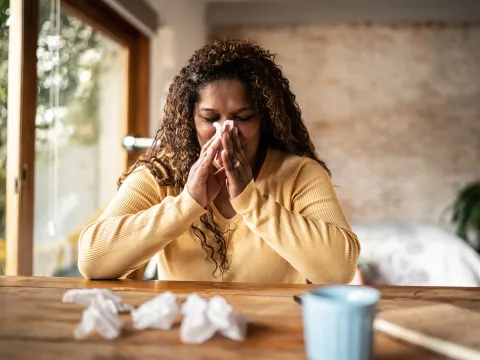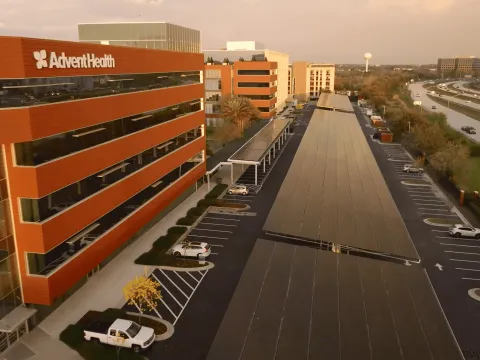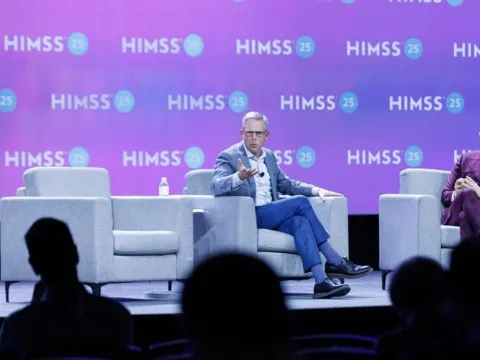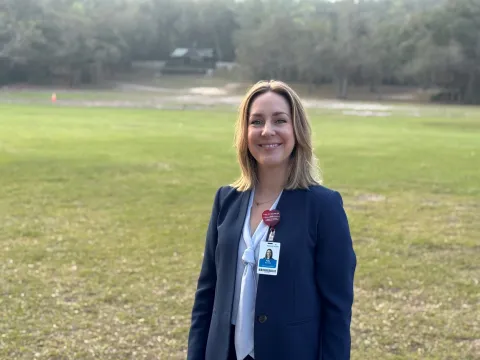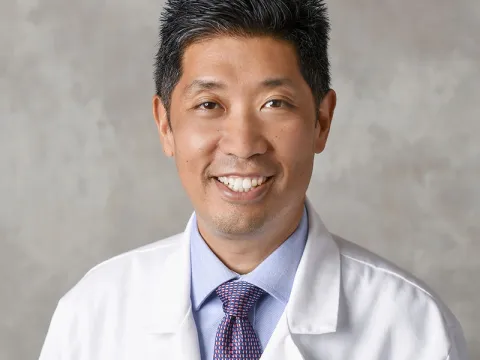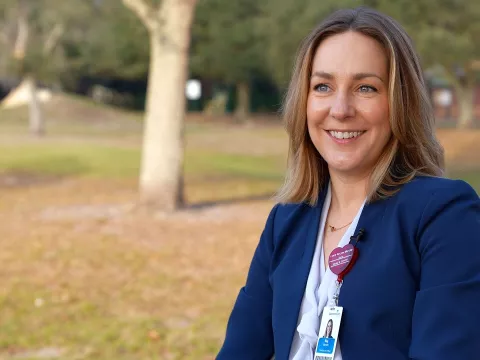- Beth Kassab
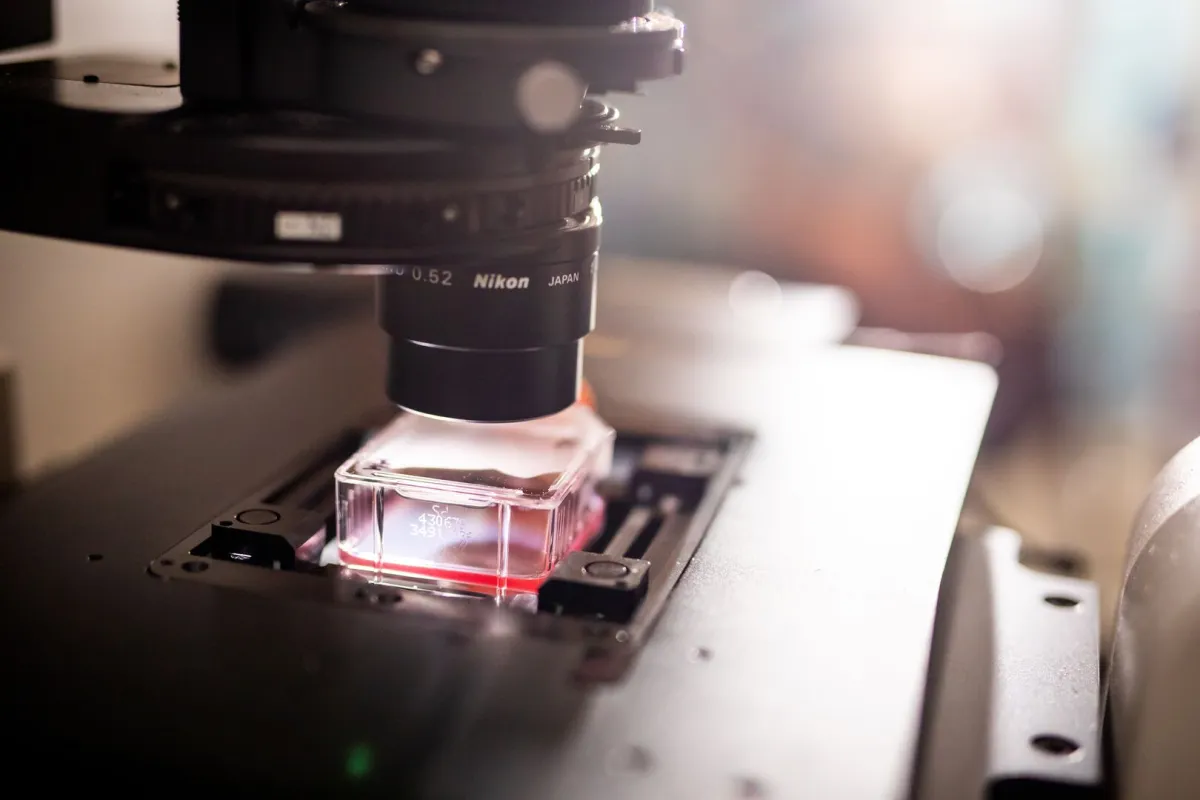
When SpaceX’s Falcon 9 launched Thursday evening, July 14, the rocket carried with it muscle cells from Central Floridians to the International Space Station.
The cargo is an experiment run by a team of scientists from the University of Florida and AdventHealth to examine how microgravity changes muscle cells. The findings could one day prove helpful to astronauts who spend long periods in space or – for those of us who are Earthbound – potentially translate to new ways to prevent or reverse weakness developed by patients confined to bed or with limited mobility.
“This is a really exciting time for us,” said Paul Coen, PhD, an associate investigator at AdventHealth’s Translational Research Institute. “The tissue chips are like miniature labs that will allow us to study how microgravity not only negatively impacts muscle biology but will also give us the opportunity to test therapeutic countermeasures.”
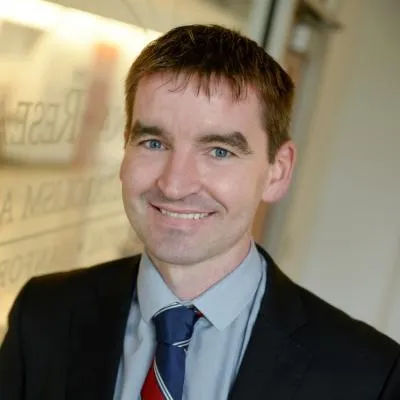
Muscles atrophy and weaken when a patient is unable to move, and Dr. Coen, who studies how aging impacts muscle loss, is looking for clues to help people remain stronger for longer periods of time. The cells headed to ISS are divided into two groups – those collected from young and older adults. Scientists want to understand how microgravity might impact muscle from older adults differently from younger adults.
The shoebox-size LabCube that contains the muscle tissue chips will then be frozen and preserved before it returns to Earth later in the year. The tissue chips will travel to the University of Florida, where Siobhan Malany, MD, the lead investigator and a professor in the College of Pharmacy, will run a number of tests to determine the impact of microgravity on the cells.
This is the second launch of human muscle cells collected at AdventHealth into space after the first batch took off in 2018. New this time: electrical stimulation built into the tissue chips so that researchers can simulate the muscle cells contracting aboard ISS. The goal is to understand how contraction might protect the cells from microgravity.
A separate, but scientifically related, National Institutes of Health-funded study led by Dr. Coen is also underway at AdventHealth Translational Research Institute. He is asking participants to spend 10 days on bedrest at TRI’s Clinical Research Unit and is comparing muscle mass, fitness and other health variables before, during and after the 10-day period. People taking part in the study can’t get up and walk around, but they can read, scroll their phones or watch TV or movies.
“The bedrooms at our clinical research unit are nicely furnished and are really comfortable,” Coen said. “Generally, our participants have a pretty good time during their 10-day stay with us.”
People interested in participating in the study can find more information here.
The results from both the space and bedrest research might one day help people recover faster after long hospital stays or, perhaps one day, combat natural muscle changes brought on by aging.
Recent News
AdventHealth is excited to introduce Eugenio L. Menendez, DO, FACP, to our community of care. He is joining the team at AdventHealth Medical Group Family Medicine at Hendersonville* following the...
The AdventHealth Board of Directors has appointed David Banks as the organization’s new president/CEO, effective immediately.
Ming Wu, MD -- a family medicine doctor with AdventHealth Littleton -- talks about the ways to lessen the impact of seasonal allergies this spring.
Joshua Champion has been named Chief Operating Officer (COO) at AdventHealth New Smyrna Beach. He officially steps into his new role on April 7.
Dr. Tim Hendrix, medical director at AdventHealth Centra Care, debunks common misconceptions about the common cold.
As grocery prices soar, many seek ways to maintain a nutritious diet without breaking the bank. The challenge often lies in effectively managing costs.
AdventHealth’s corporate campus solar energy project is one of the largest privately owned solar projects in Florida.
David Banks, a senior executive at AdventHealth, explains how the right technology doesn't replace human care -- it makes it better.
AdventHealth Celebration is prioritizing nutrition and sustainability through an innovative program at the hospital. Leaders are utilizing a Freight Farm to grow produce.
For Kay Barnett, leadership goes beyond a job title. It’s about presence, perseverance and empowering others along the way.
If you had your shots administered 30 to 40 years ago, are you still safe? News 6 looked for an expert at AdventHealth for the answer.
For Kay Barnett, leadership goes beyond a job title -- it’s about presence, perseverance and empowering others along the way.

